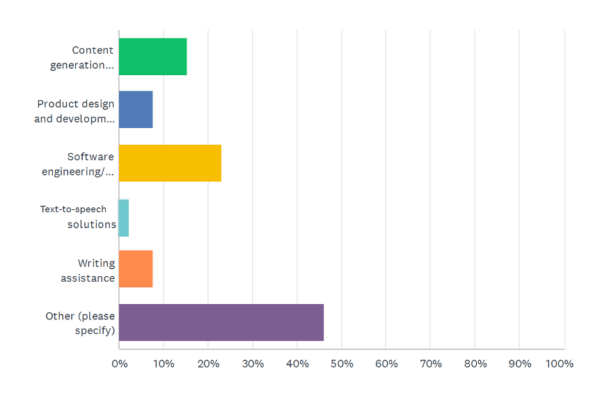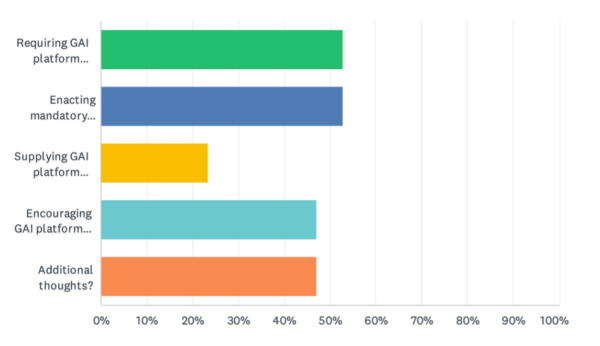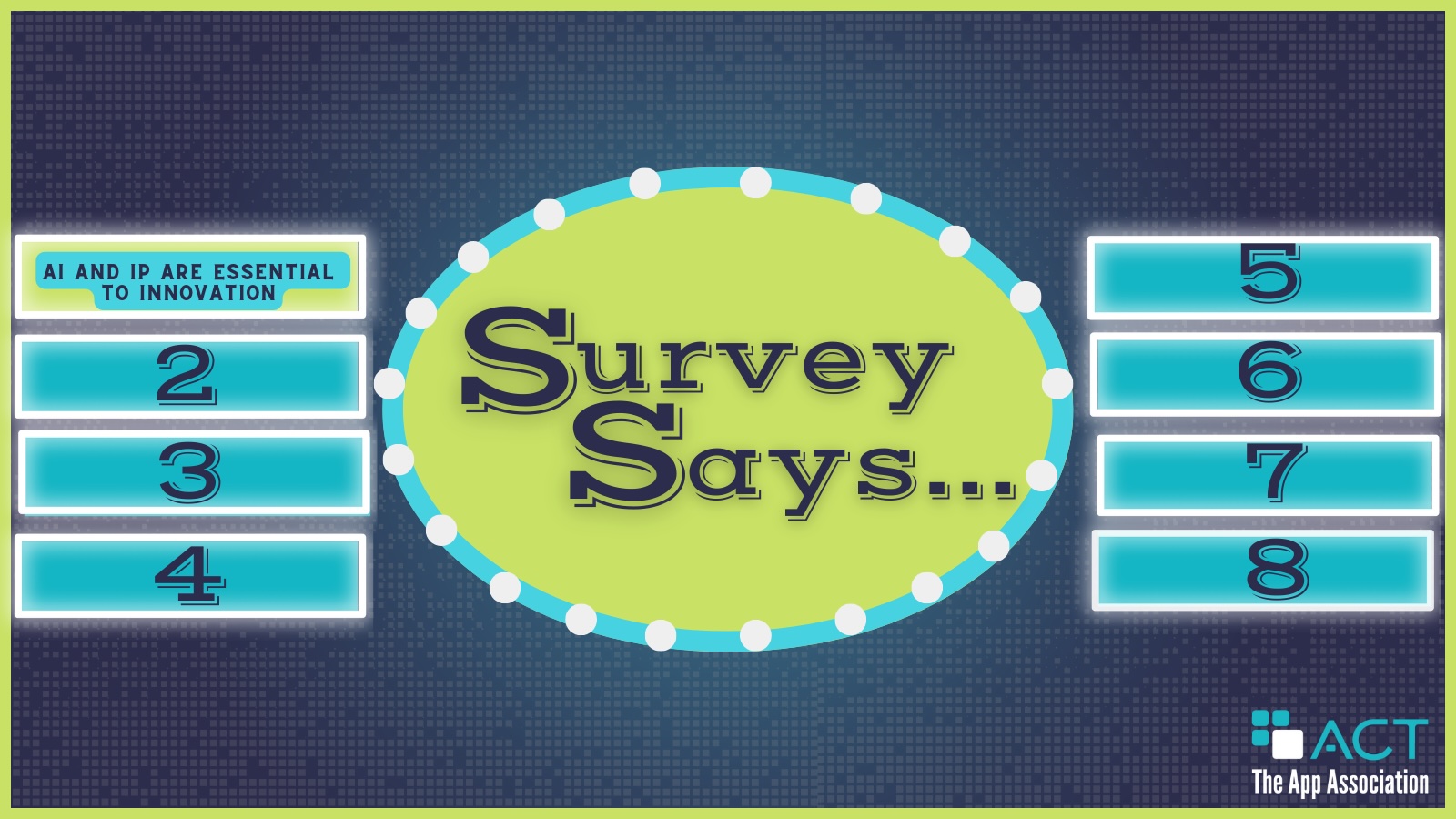For ACT | The App Association’s small business members, generative artificial intelligence (GAI) has become an incredible tool to reduce the time and cost of bringing technologies to market. While some might think of large companies like OpenAI as the ultimate authority on public-facing GAI models, App Association members have been both creators and users of this technology for decades. Despite new GAI applications bringing excitement to various industries, the use cases alleging significant intellectual property (IP) concerns surrounding GAI models do not yet cleanly map to today’s laws and regulations. This is true for the U.S. copyright landscape, which our members rely on to protect the ideas they form for crucial software innovation.
To understand how our members are using, and plan to use, GAI and how they are approaching these challenging questions, we took to the polls and surveyed App Association member companies about their IP concerns when using public-facing GAI models. The survey results are a significant indication that small businesses need to be at the proverbial table when it comes to AI.
The Results
Seventy-five percent of our surveyed members use GAI tools in their businesses that span over 17 distinct market sectors. These members stated that they benefit from the time, cost efficiency, and added productivity that GAI models provide their businesses. Sampled members also identified AI ethical considerations (i.e., bias), IP infringement (including their and their clients’ IP), and reliance on potentially fabricated or incorrect information as areas of concern.
While many members use a variation of GAI models, five platforms surfaced amongst the rest: ChatGPT (93.33 percent), GPT-4 (66.67percent), DALL-E (60.00 percent), GitHub Copilot (40.00 percent), and Bard (33.33 percent). These platforms support a combination of tasks, including content generation (e.g., images, videos, music), product design and development (e.g., text, speech, images, music, video, etc.), software engineering/coding, and writing assistance.

App Association members also identified additional uses of GAI tools, such as:
- Decision making
- Advising clients and consumers on the safe use of all AI, including GAI
- Assisting services for automated matches to grant funding
- Outward campaigning and public relations
So, how do App Association members feel about uncertainties in using GAI technology related to copyright? Our survey revealed a range of views related to potential liability for infringing on other rights holders’ IP when using GAI platforms. While a solid contingent noted their concerns with liability questions based on technical feasibility issues and unsettled law for key technology developer use cases (e.g., using GAI to improve the coding process), others noted some practical solutions available today. While these responses varied widely, we are confident in concluding that the small business innovator community needs further certainty at the intersection of GAI and copyright protection and enforcement.
We also asked our members what they thought about the helpfulness and feasibility of four publicly proposed policy solutions to copyright issues that GAI gives rise to: (1) requiring GAI platform providers to use digital watermarking for copyright-protected data; (2) enacting mandatory disclosures requirements for GAI platform providers to adhere to for IP-protected and other proprietary data; (3) supplying GAI platform providers with legally safe training data sets to train their GAI models housed by an appointed government agency; and (4) encouraging GAI platform providers to adhere to a standardized licensing code of practice. The below reflects the distribution of support expressed for them:

In Conclusion
App Association members are trailblazers who build and use GAI to compete and innovate across consumer and enterprise verticals. While GAI is presenting some novel questions as we try to apply today’s legal frameworks to its deployments and uses, it remains to be seen whether any sweeping copyright policy changes are necessary to support the U.S. Constitution while encouraging innovation and competition. At the same time, uncertainties at the intersection of copyright law and GAI are certainly there, and policymakers could do much to provide a more transparent and predictable landscape. This is exactly why the App Association continues to establish its membership voice at the forefront of IP and AI matters.
As proposals continue to be offered and developed, it’s critical that the small business innovator viewpoint is considered. As the results of our survey verified, though larger, well-resourced companies may be able to absorb risks related to GAI and copyright (and can more easily distribute risk across multiple product lines), small businesses cannot. For the latter, a single claim of infringement in a lawsuit, for example, can represent an end-of-life scenario. Yet, we need these startups and small businesses across verticals to take the risks on new ideas to drive competition.
The varied responses to our survey should be interesting and helpful to those engaged in copyright-GAI policy debates. It is certainly clear that providing clarity to the small business innovator community on leading copyright-GAI questions is necessary for their viability. As policy proposals are considered in Congress, by the U.S. Copyright Office, and elsewhere, further dialogue focused on the small business community is needed.
